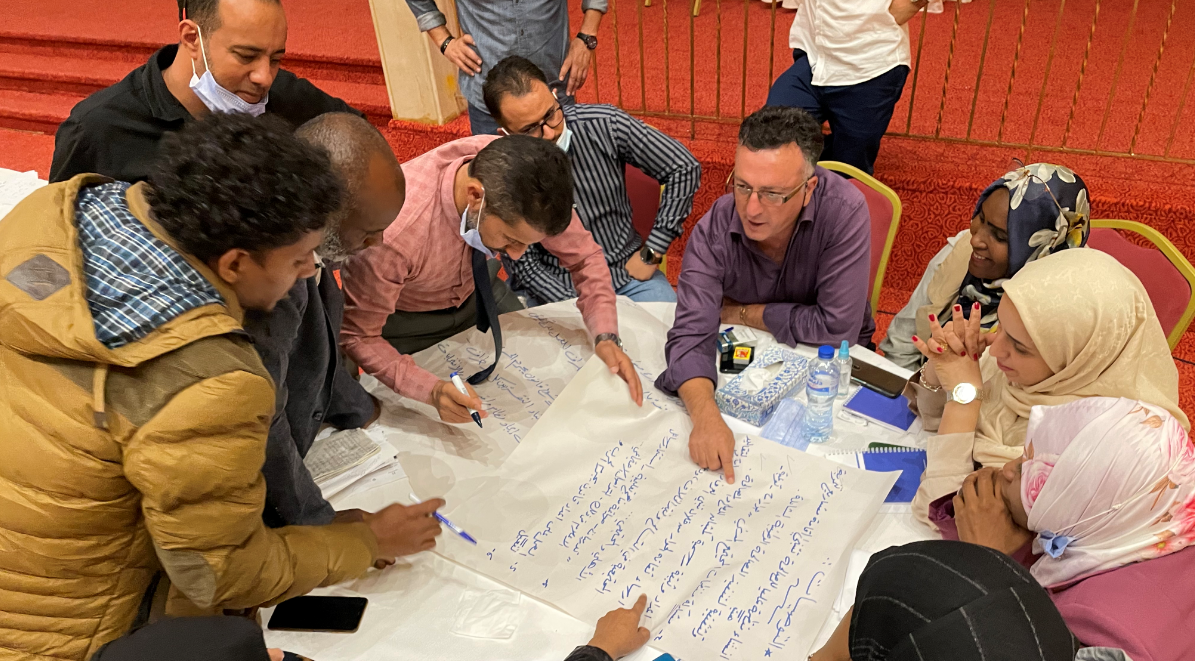Over the last ten years, Libya has been subject to several political and economic conflicts. The country suffers from a deep crisis of leadership, where the outcome is a grave disconnect between State authorities and its citizens. Multiple polarising actors dominate the political scene and aggravate social and economic grievances. Additionally, the international community has been fragmented as different entities pursue interest-driven, narrow objectives.
Interpeace has been focusing its peacebuilding efforts at the grassroots level in Libya since 2011 and, more recently, in Yemen. One of our peacebuilding approaches (“track 6”) focuses on bridging the gap between local communities, civil society, governments, and the international community. It helps ensure that high-level policies reflect local realities and benefit from local knowledge. However, this approach is greatly challenged in many places across the Middle East and North Africa because of deep political and social fragmentation. Without legitimate political processes, grassroots peacebuilding proves efficient at the local level but cannot achieve a greater impact at the national and regional levels. In Libya, our peacebuilding interventions have created trust at the local level and identified solutions to local problems, but this has not percolated to the high-level decision-making (“track 1”).
During the 11 years of work in Libya, Interpeace has witnessed the different phases of regional and local conflict and has adapted its programming to this reality. Through the “peace-mapping” project, Interpeace analyzed why some communities stayed peaceful while surrounded by instability. This project laid the foundation for Interpeace’s follow-up work, which sought to strengthen local capacity for resilience through dialogue and gradually build pockets of stability across the country. The program established and trained a network of change agents – Libyans of all ages, genders and social statuses that are embedded and central to their communities. The change agents received training in conflict analysis and transformation, dialogue facilitation, and mediation.
While change agents are making a difference by addressing issues in their communities, ranging from garbage collection to addressing the trauma of the war, there is an inability to engage in political issues at a national level. As a result, although our peacebuilding interventions have succeeded in creating pockets of stability across the country, political and economic instability has limited our ability to project local stability to the national level through the network of change agents.
Renée Larivière, Interpeace Senior Director for Program Management, explains the reasoning behind our peacebuilding approach as we face the challenge of bridging the gap in Libya: “In this context, we have focused our efforts on building resilience for peace, as this is central to the ability of communities to manage their divisions and tensions legitimately, inclusively and non-violently. In Libya and now also through our program in Yemen, Interpeace continues to invest in grassroots change agents to make a difference in their own communities, but also to elevate efforts into more systematic civic engagement.”


